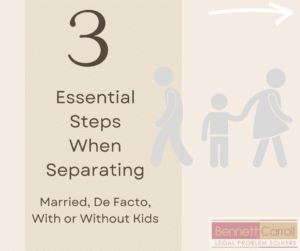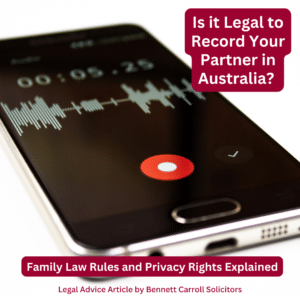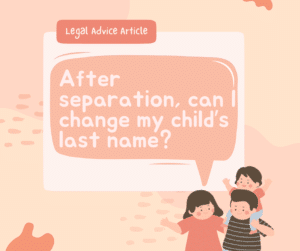The legal framework governing same-sex separations in Australia has evolved significantly over recent years, particularly with the legal recognition of same-sex marriage in December 2017. The passage of the Marriage Amendment (Definition and Religious Freedoms) Act 2017 marked a historic moment, ensuring that same-sex couples have the same rights and responsibilities under Australian family law. However, separations, like marriages, involve navigating complex legal issues, and same-sex separations present unique considerations.
Legal Rights and Division of Property
Under the *Family Law Act 1975*, the same legal principles apply to the separation of same-sex married couples and de facto couples. This means that when a same-sex couple separates, they have the same rights to property settlements, financial support (spousal maintenance), and parenting arrangements as heterosexual couples. For de facto relationships, the couple must prove that they lived together on a genuine domestic basis for at least two years to be eligible for a property settlement under the Family Court’s jurisdiction. This applies to same-sex and opposite-sex de facto couples.
Parenting Arrangements and Children
Parenting disputes can be more complex for same-sex couples, especially if only one partner is the biological parent of the child. Australian family law focuses on the best interests of the child, considering factors such as the child’s relationship with each parent, their cultural background, and their views, depending on their age and maturity. In cases where both parents have played a significant role in the child’s life, the court aims to ensure that the child maintains a meaningful relationship with both parties after separation.
In some cases, same-sex couples may face additional challenges if the legal status of both parents is unclear, such as when only one parent is listed on the birth certificate or when assisted reproductive technology (ART) has been used. In these situations, legal advice is essential to clarify parental rights and responsibilities.
Divorce and Financial Settlements
For married same-sex couples, the divorce process is the same as for opposite-sex couples. Australia follows a no-fault divorce system, which means that the only ground for divorce is the irretrievable breakdown of the marriage, demonstrated by 12 months of separation. After divorce, same-sex couples have access to the same property division processes as other couples, with considerations including the length of the relationship, financial and non-financial contributions, and future needs.
De Facto Separations
De facto same-sex couples who separate have similar rights and obligations as married couples, but they must apply to the court for property settlement within two years of the separation. If they miss this deadline, they may need to seek special permission from the court to proceed. This is an important distinction, as failure to act within this timeframe can impact their ability to fairly divide assets.
Conclusion
Australia’s family law framework treats same-sex separations with the same legal weight as heterosexual separations, providing an inclusive approach to marriage, de facto relationships, property settlements, and parenting. However, specific circumstances—such as issues relating to parental status or time limits for de facto relationships—can add complexity to the process. Seeking legal advice early on can help ensure that rights are protected and disputes are resolved fairly.
Contact our South East Queensland offices in Brisbane, Gold Coast, or Sunshine Coast today for expert advice on same-sex separations and family law matters.
See our other relevant articles:
Other relevant websites:










